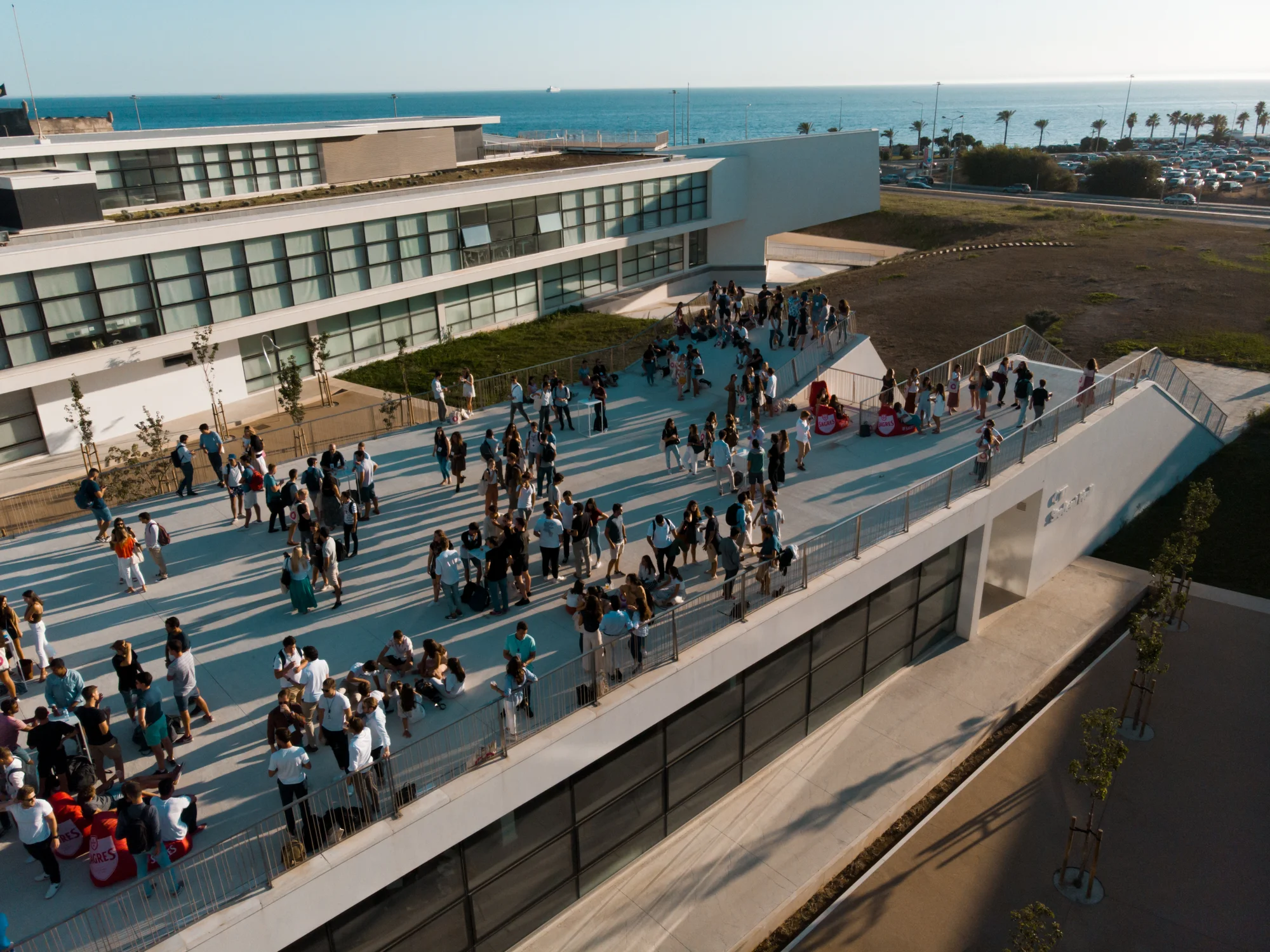ChatGPT: What do international students need to know?
Love it or hate it, ChatGPT has fast become the topic you can’t ignore – and the implications for students are profound.

If you’re thinking of applying to a university or business school, you can be forgiven for feeling utterly confused as to what you need to know about the advanced AI chatbot. Should you rush to master it? Or worry that you’ll be punished for using it?
Will you still hand in written essays? Or will ChatGPT usher in new methods of assessment? Three professors at one leading European business school give you the lowdown on what to expect.
Should it be embraced or banned?
Opinion has certainly been split in the public debate about using ChatGPT – which can write detailed answers to questions, compose essays and even write code – within education. Some sounded the alarm about plagiarism running out of control and New York’s department of education blocked it from classrooms.
So should students resign themselves to not being able to use this tool? Far from it, says Professor Pedro Oliveira, Dean of Nova School of Business & Economics (Nova SBE) in Lisbon, which is formulating a policy that will embrace ChatGPT and allow teaching staff discretion about the specifics of its usage.
“We have an obligation to prepare our students for the world out there,” he says. “AI is going to change education and every industry, and we better be ready for it if we want to develop a competitive edge.”
Asked about Italy’s outright ban on ChatGPT, Professor Oliveira adds: “Attempts to stop this are like trying to stop the wind with your hands. Maybe Italian students will be behind when they finally do need to start using it.”
Want to join a new era in education? Check out the Master’s programmes taught in English at Nova SBE in Lisbon
Will it make you more productive?
The global economy could be facing a “lost decade”, according to a recent World Bank report, which says boosting falling productivity is one of the keys to averting this scenario.
Any new technology that raises productivity is sure to be in high demand. This is precisely why businesses in many sectors have been quick to adopt ChatGPT, says Professor Ana Balcão Reis, an economist who has done research on growth driven by new technology.
“I speak to people using ChatGPT in business who are seeing an increase in productivity; for instance, financial companies using it to begin writing reports or tech companies for the first step in drafting code.”
The view at Nova SBE, which has close links with the corporate world, is that a simple drive for productivity will see ChatGPT continue to spread at campuses and workplaces.
 Productivity drive: AI could make students and workers more efficient. Photo: Getty Images
Productivity drive: AI could make students and workers more efficient. Photo: Getty Images“It will help us do our jobs faster and then you can work on improving things for the best result,” says Professor Oliveira. “Working this way is cheaper and will increase overall output just as technology has in the past.”
He compares opponents to maths teachers who protested against having calculators in class. “In the early stages of education, you do need to know how the calculation process works. But AI isn’t going to stop us teaching; we can still interact with students in the classroom.”
Is it time to relax and let AI take over?
You think getting through higher education will now be a breeze with AI doing the hard work for you? Think again! While education officials in New York voiced concern that ChatGPT “does not build critical-thinking”, others believe it all depends on how the tool is used – and that the opposite could be true with the right approach.
This is one of the reasons why teaching staff at Nova SBE are encouraged to explore AI and ChatGPT.
“Maybe AI will make us more human because the machine can do the mechanical part of our work and free us to focus on critical thinking,” says Professor Oliveira.
Your university teachers now have more reasons than ever to demand you weed mistakes out of written material and closely scrutinise what is said.
“Even if you have an argument that doesn’t contradict current evidence, you need to develop your own thinking about the pros and cons,” says Professor Cátia Batista, President of Nova SBE's Pedagogical Council and former Academic Director of its MSc in Economics. “Our world is not all black and white, there are shades of grey and you need to make up your own mind.”
Stories of ChatGPT’s sometimes questionable declarations abound and owner OpenAI says the tool "sometimes writes plausible-sounding but incorrect or nonsensical answers". Its advance should also mean a premium is put on fact-checking and use of multiple sources. “This isn’t just for reporters; this is an essential skill for business and economics students, and for everyone,” Professor Batista says.
How will university assessment change?
Universities must radically re-think their assessment methods to focus less on written assignments, according to Professor Oliveira, who also holds positions at Copenhagen Business School and Cornell University in the US. In fact, Nova SBE has already made a significant switch.
“We’ve reduced the time a student gets to present their thesis and increased the time for jury members to ask questions,” says the Dean. “Maybe the report is beautiful and very well written but did you write it? We’ll reduce the weight of written reports and oral examinations are going to grow. Regardless of what is in the text, I need you to defend your point of view.”
Professor Oliveira cites one example of ChatGPT producing a 70-page thesis with images. “My colleague, who prompted it, said it would have been a good pass.”
Professor Batista admits to concern that AI will change students’ thought processes. “Writing is part of the learning process – we learn how to organise our ideas with structure and how to communicate. I worry that if ChatGPT replaces this process, that ability will be undermined.
"Universities need to develop pedagogical strategies to promote students' learning by using AI tools to their benefit – these tools can undertake routine error-prone tasks, but also support creativity by raising new questions and more general food for thought."
 Students enjoying the sun at Nova SBE's campus on the Lisbon coast. Photo: Nova SBE
Students enjoying the sun at Nova SBE's campus on the Lisbon coast. Photo: Nova SBEHow will it shape your career after graduating?
Reaching 100 million users took the telephone 75 years, the mobile phone 16 years, and Instagram 2.5 years. ChatGPT? Two months! Today’s students will graduate into a world being reshaped by AI at a phenomenal pace.
Professor Balcão Reis, Vice-Dean for Degree and Master’s Programmes, says students applying to Nova SBE should be ready for “projects that bring the real world to the class”. She adds: “Some professors here already give students the outcome from ChatGPT and then ask for a discussion in class."
Nova SBE is 24th in the FT’s rankings of European business schools. International students make up 40 percent of the student body, while alumni are found in more than 60 countries.
Among the nine Master's programmes offered by Nova SBE are Business Analytics, for those interested in solving problems with data, Impact Entrepreneurship and Innovation, to help you develop your entrepreneurial DNA, and International Development and Public Policy, for decision-makers of the future.
If you’re thinking of applying for a Master’s, Professor Batista has one last point about the rise of AI worth considering. “People with better education who can focus on creative tasks stand to gain the most,” she says.
The overall verdict? ChatGPT is here to stay – and learning how to use it wisely may just set you up for life.
This content was paid for by an advertiser and produced by The Local's Creative Studio.

Join the conversation in our comments section below. Share your own views and experience and if you have a question or suggestion for our journalists then email us at [email protected].
Please keep comments civil, constructive and on topic – and make sure to read our terms of use before getting involved.
Please log in here to leave a comment.